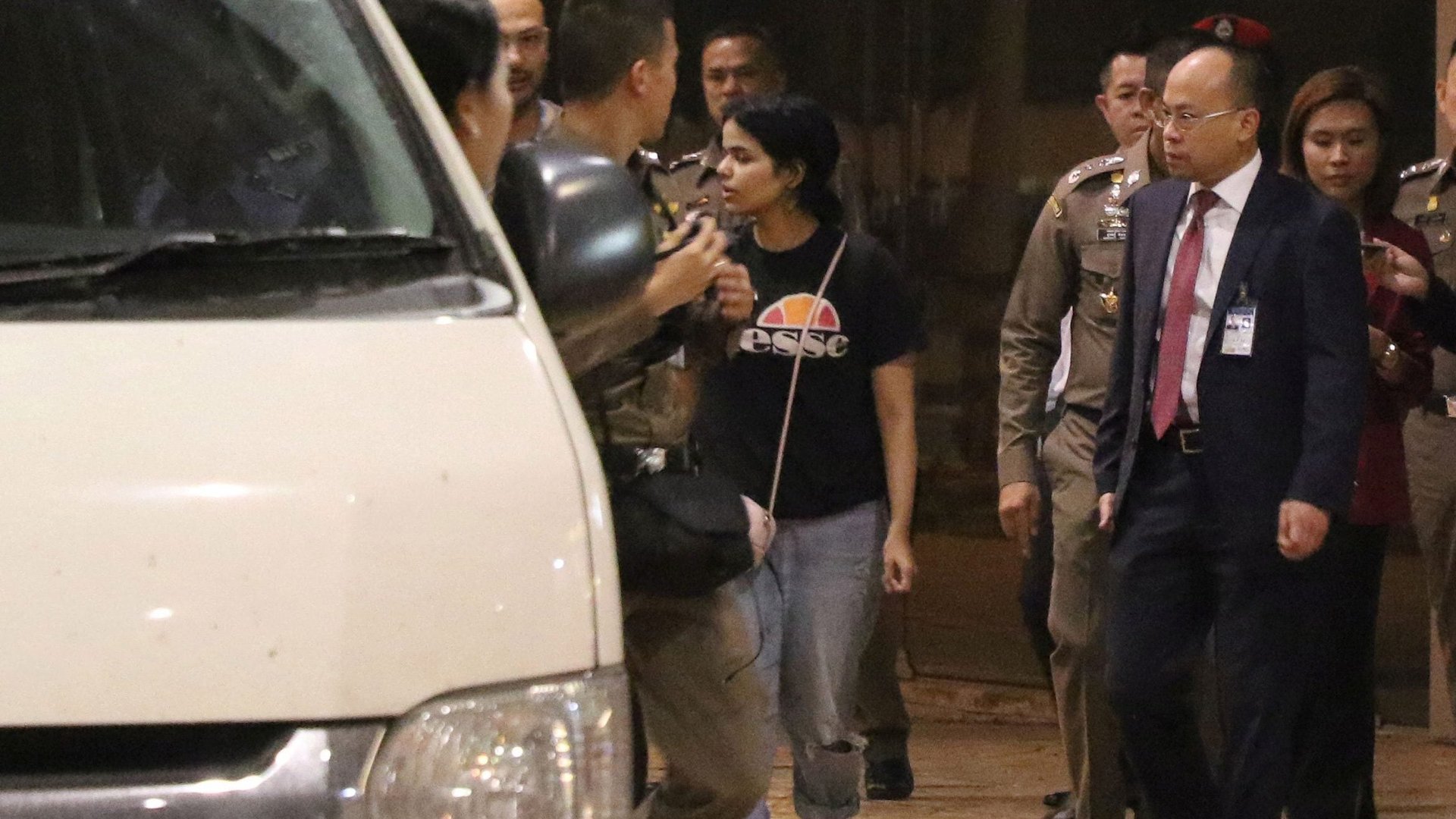“I did it”: Saudi teen who fled her family gets asylum in Canada
A Saudi teen who fled her family and opened a Twitter account as part of a daring bid to seek her freedom has been granted asylum in Canada.


A Saudi teen who fled her family and opened a Twitter account as part of a daring bid to seek her freedom has been granted asylum in Canada.
The announcement came after a Thai official on Friday (Jan. 11) said that Australia and Canada had both granted asylum to the Saudi teen, Rahaf al-Qunun, CNN reported. The official later confirmed al-Qunun was on her way to Canada, after a week of twists and turns that began with her trapped in Bangkok airport, fighting being sent back to her family.
Al-Qunun left Kuwait last weekend while on vacation with her family and tried to reach Australia. She was apprehended at Bangkok airport, and her travel documents were confiscated. Thai authorities agreed not to deport her, and she was later granted refugee status by the United Nations.
Al-Qunun, who had been communicating to the world through Twitter (with help from her friends) during her ordeal, said she feared for her life if she was sent back to Saudi Arabia. Under the kingdom’s guardianship rules, a woman’s husband or male family members act as her custodian, and have ultimate say over what she can do and where she can go.
On Friday, al-Qunun’s Twitter account, which gathered over 130,000 followers since she began tweeting last weekend, appeared to have been deactivated. But hours later it tweeted a message of triumph:
A Thai official said it was al-Qunun’s wish to go to Canada instead of Australia, her earlier destination. Canada’s unexpected offer of asylum is likely to worsen already tense relations with the Saudi kingdom, which last year expelled the Canadian ambassador after Ottawa called for the immediate release of jailed women activists.
Some on the social media platform had speculated that the closure of al-Qunun’s Twitter account may have been part of efforts to ensure her safety while the resettlement was under way.
A Reuters report, citing a friend of al-Qunun, said that she deleted her Twitter account after getting death threats.
Saudi officials have certainly taken note of her Twitter activity. After al-Qunun was safely in UN custody, a Saudi diplomat based in Bangkok reportedly suggested that Thai immigration police should have confiscated her phone instead of her passport, believing that that could have prevented her from being allowed to remain in Thailand due to a lack of international attention.
SA charge d’affaires in Bangkok Mr. Al-Shuaibi in a meeting with Thai officials:
“She opened a Twitter account and her followers grew to 45000 within one day. It would have been better if they confiscated her cell phone instead of her passport because Twitter changed everything” pic.twitter.com/FEjPjUbteV
— Taleb Al Abdulmohsen (@DrTalebJawad) January 8, 2019
Saudi Arabia has seen a boom in social-media use, including by women seeking reforms, though there remains a wide gulf between the numbers of male and female users of popular platforms.
Some activists are hoping that al-Qunun’s escape could invigorate efforts by women to fight back against restrictive guardianship rules, after an Arabic hashtag that roughly translated as “end guardianship or we’ll all migrate” began circulating on Twitter.
Human-rights researchers, however, say that there’s a risk that al-Qunun’s escape could make Saudi families and officials more vigilant about the use of phones—and therefore make it more difficult for others to replicate her attempt.
“While people believe that the potentially successful escape by Rahaf may mean more women attempting this, the truth is that it could also mean more abusive families will be even more restrictive and careful to ensure that women do not attempt such escapes,” Rothna Begum, senior women’s rights researcher at Human Rights Watch, told Quartz. “The Saudi authorities may also request confiscation of women’s phones when appealing to other governments to arrest women upon arrival before forcibly returning them.”
Update, Jan. 12: This story was updated with confirmation of al-Qunun’s acceptance of an asylum offer from Canada.